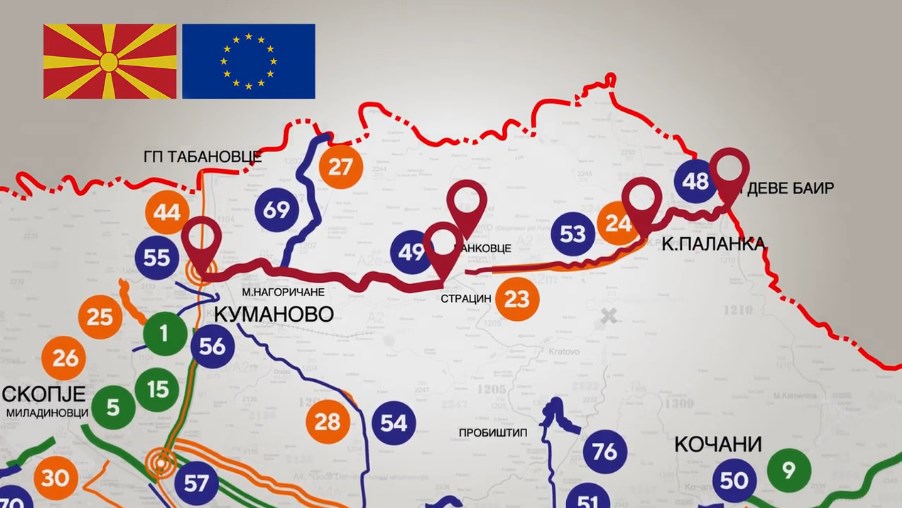Construction of Corridors 8 and 10 in North Macedonia yet to commence

The Turkish American consortium Bechtel – Enka has yet to break ground on the Corridors 8 and 10 projects in North Macedonia. The delays have been caused by protests by affected landowners who are contesting the compensation they have been offered for their land. They have organized protests, blocking roads and machinery, making it impossible for the company to commence work. Legal proceedings are currently underway to determine whether the excavations pose risks to individuals and the environment.
Why is this relevant
Corridors 8 and 10, will play a very important role in improving regional connectivity and economic development in the Western Balkans, but by expanding and consolidating the regions connectivity with the European Union, they also have an important geopolitical and EU integration dimension.
Protests by landowners are not the sole complication standing in the way of the project. The winner of the May 8 general elections in North Macedonia, VMRO-DPMNE, recently announced that it plans to review all procedures related to the corridors project. VMRO-DPMNE party leader, Hristijan Mickoski, outlined two potential courses of action for the new government: either cancel the contract altogether or revise it based on expert recommendations. Mickoski emphasized the importance of adopting a pragmatic approach to ensure that citizens benefit from the construction of the highway, but warned of significant legal and technical challenges with the existing agreement.
The North Macedonian segments of Corridors 8 and 10 spans a total of 109 kilometers and were expected to be completed by the end of 2027. Corridor 8 serves as a vital trans-European transport network, connecting Albania, North Macedonia, and Bulgaria, from the Adriatic Sea to the Black Sea, thereby bolstering regional integration with the European Union. Meanwhile, Corridor 10, traversing Austria, Slovenia, Croatia, Serbia, North Macedonia, and Greece, enhances north-south connectivity across the Balkans, facilitating market access and fostering economic and political integration among participating countries. These infrastructure projects not only signal a commitment to EU standards but also support the accession processes of aspiring EU member states by improving regional connectivity.


